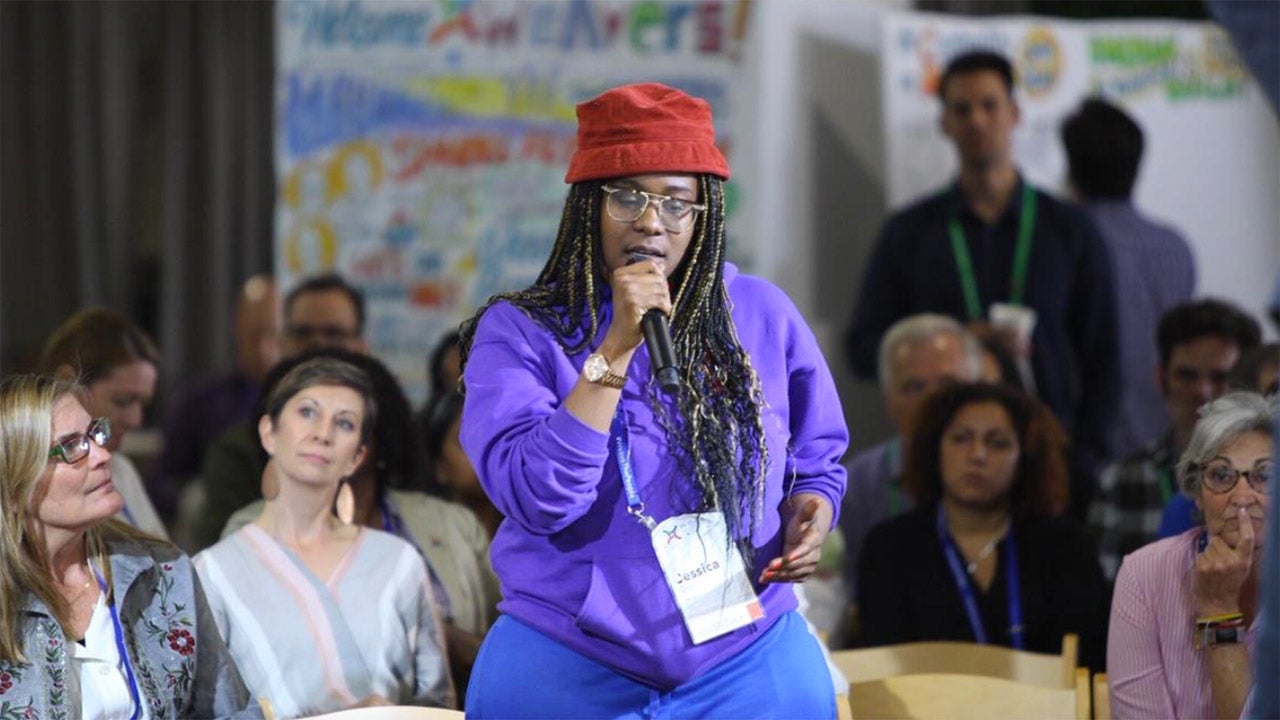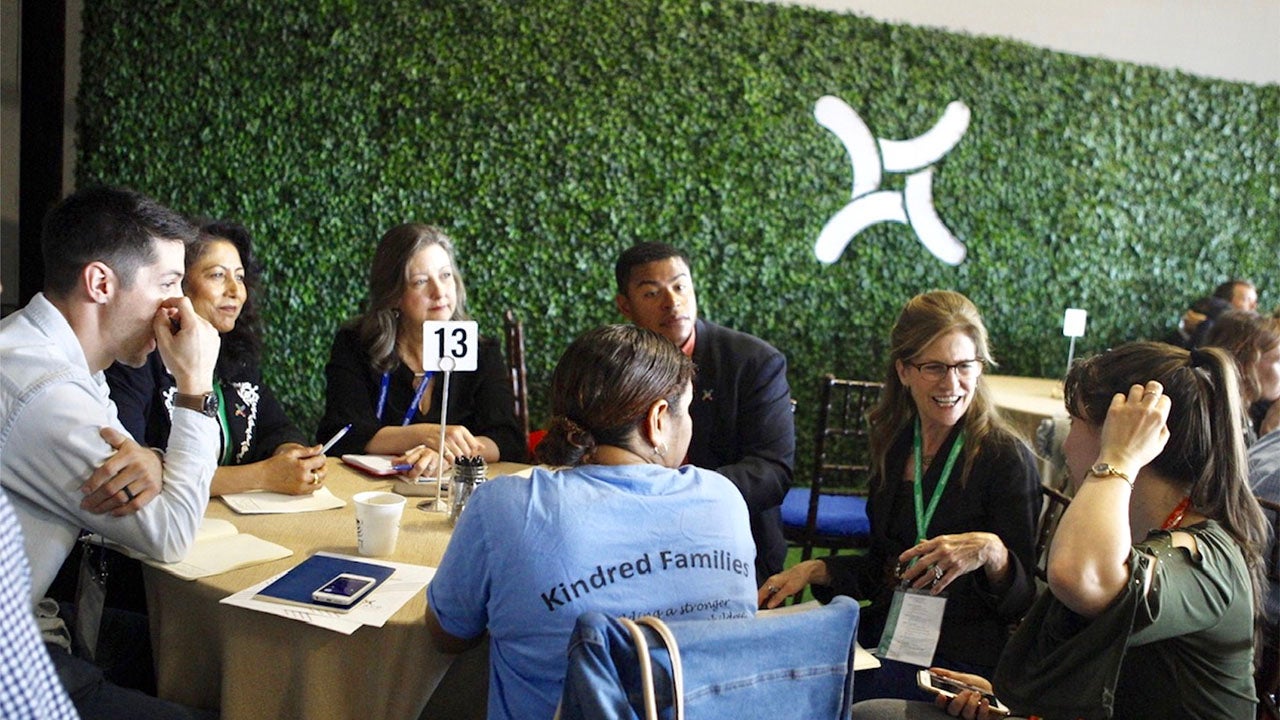When I was in elementary school, my favorite part of the Constitutional Convention story was that the Founding Fathers had no air conditioning. I liked to imagine how much they must’ve sweat in their waistcoats and under their wigs. Here were these great leaders, sweating just like I did on hot summer days.
I’ve thought about the perspiration of the Founding Fathers several times during our #WeaveThePeople congress. We haven’t been sweating literally (except for those of us who did the morning yoga), but many of us have been metaphorically. The challenge before us — to create a new social movement of weavers — is, as David Brooks suggests, mountain-sized.
As with any community, we at this congress have brought our backgrounds, talents, and traumas with us. And just like any community, we could be either strengthened or permanently divided by them. Fortunately, as a room of 250 weavers, building honest, deep relationships is what we do. Today’s trek up the mountain was ostensibly about how we build community in our hometowns. It was also very much about building it among ourselves.
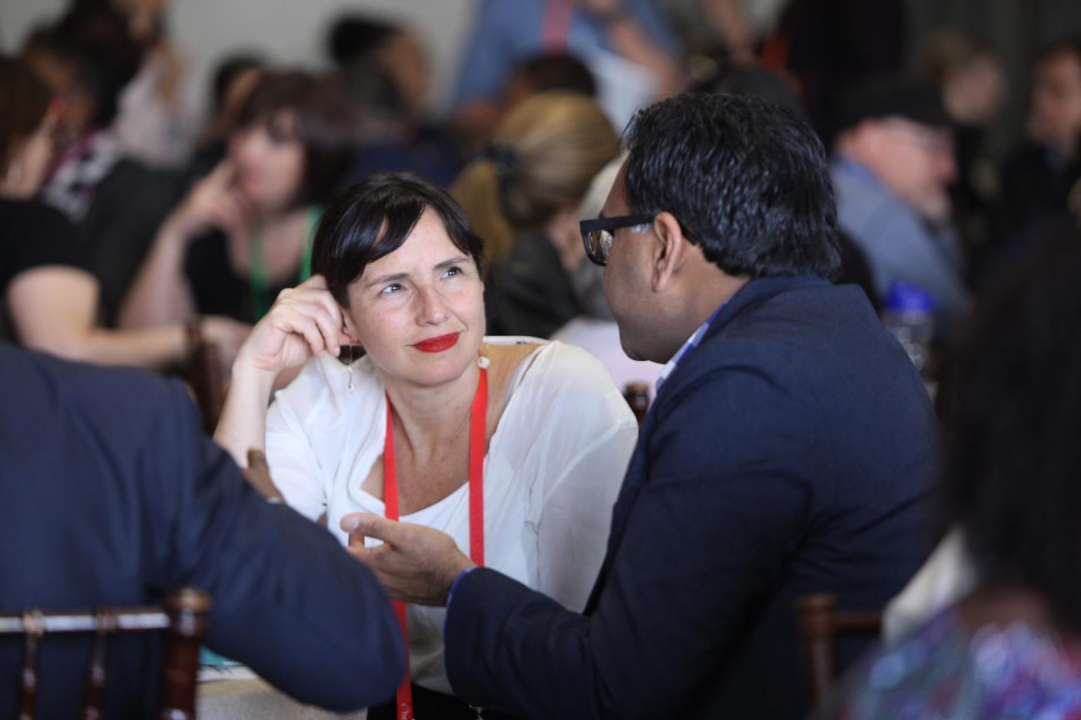
Early in the day, Agnes McKeen, who lost her son to suicide and started Just Talk, a suicide prevention organization, shared the way she forges connection: “When I approach anybody, when I’m talking to any individual at any point in time, I come at them with my own personal, most vulnerable moment, so I immediately become a safe person to talk to.”
Adria Goodson told a story about getting feedback that her Pahara Institute program, rather than helping solve inequity in education, was perpetuating it. One woman told her she “didn’t get it” and had to face her own internalized racism. Rather than tap into her expertise as a coach and facilitator or practicing humble inquiry, she said, “I suddenly felt swooshed back into my little six-year-old self on the corner of 73rd and Paxton on the south side of Chicago where I had six darker-skinned black girls telling me I was an Oreo, and I needed to go home to my white momma and get off the street. I felt really small… I wanted to leave, but that wasn’t my job. I had to stay.” She continued the conversation with that person over the last year, sitting, as she put it, in the fire, learning and developing intimacy.
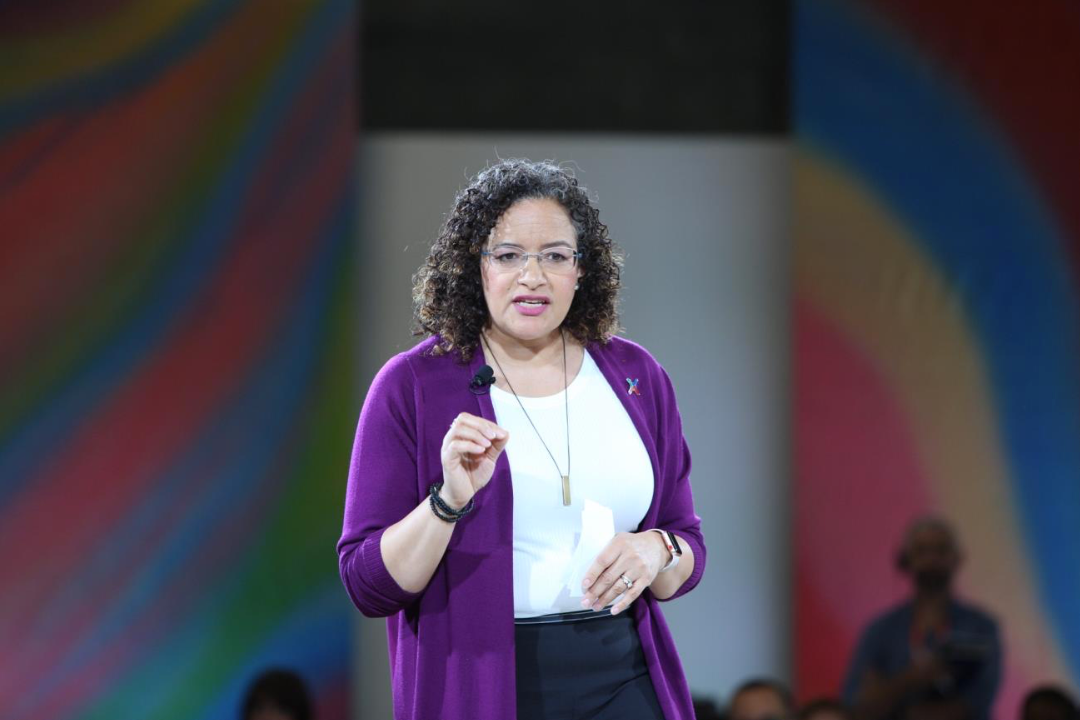
Reverend Jennifer Bailey, the founder and executive director of the Faith Matters Network, spoke about how she has built relationships at Wednesday night bible studies —simply by showing up. “It’s in the process of doing community together that we build relationships and trust,” she said, “Relationships move at the speed of trust, but social change moves at the speed of relationships.”
Social psychologist Jonathan Haidt spoke about the importance of weavers building relationships across ideology, with both those on the Left and the Right, quoting John Stuart Mill on how “in almost every one of the leading controversies, past or present… both sides were right in what they affirmed, though wrong in what they denied.” We will be strongest, said Haidt, when we build with input from both sides.
As the day continued, we discussed how to connect and carry our stories to the world outside our immediate communities. David Bornstein, a founder of the Solutions Journalism Network, shared research showing the news stories that gain the most traction and audience engagement are those framed as collective quests or problem-solving narratives, rather than as tragic problems waiting to be solved or single-hero success stories. Monica Guzman, co-founder of Seattle’s The Evergrey newsletter, spoke about how seemingly simple practices of inclusion, like replacing words such as ‘locals’ with ‘neighbors’ and ‘city’ with ‘our city’ has helped foster community around the publication.
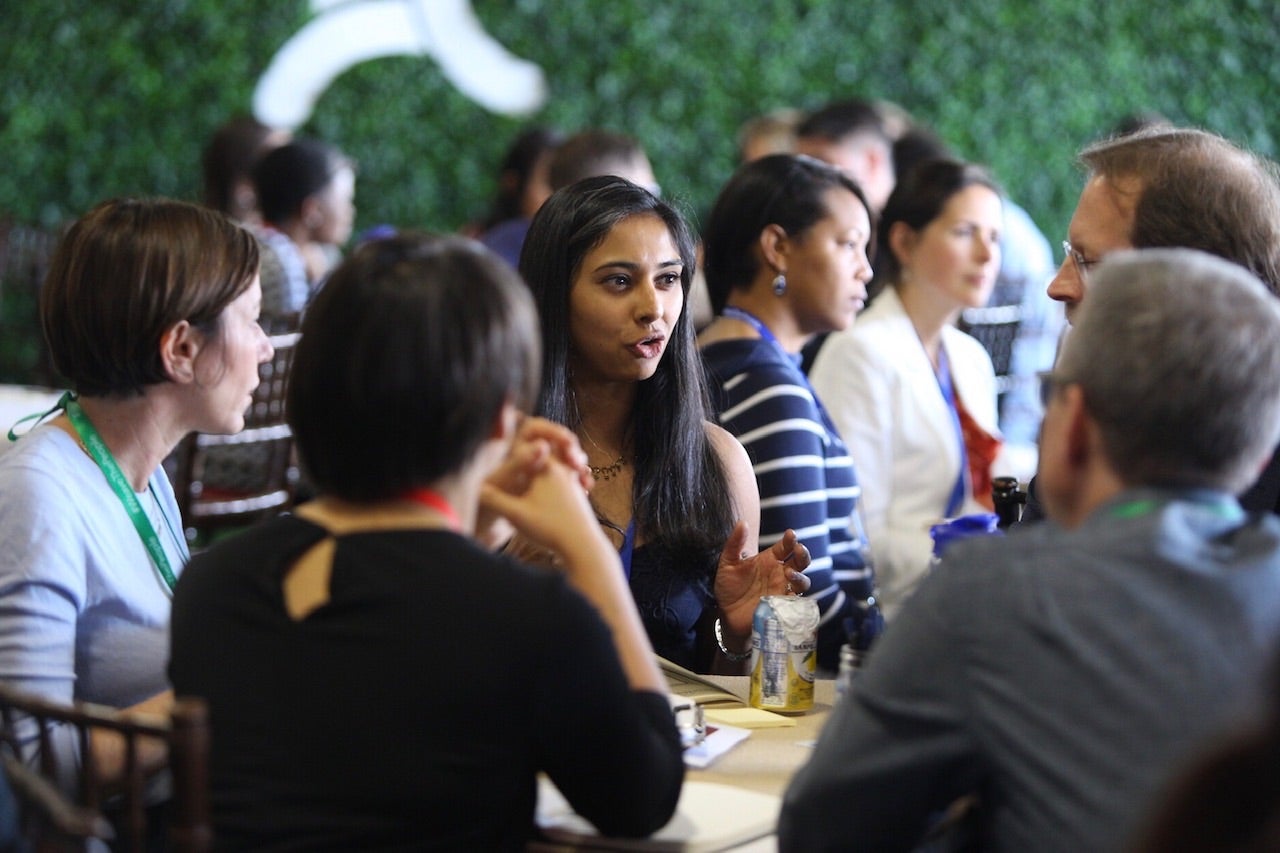
The day closed with Sister Jenna, who runs the DC Meditation Museums of the Brahma Kumaris service organization, offering a meditation exercise. She and Reverend Dan Claire of DC’s Church of the Resurrection reminded us of the importance of self-care in our work and of giving ourselves permission to take time for ourselves and say no, so we can maintain the energy needed to build the relationships we so value – relationships which journalist and moderator Katie Couric highlighted provide a great source of purpose. “Weavers can’t compromise their peace,” Sister Jenna explained, “We’ve got too much work to do.”
Tomorrow, we return to Union Market for our final day of #WeaveThePeople and, I expect, more sweating. We have not finished the work of community building within ourselves, but we have started it, enough so that when I spoke with Good Projects’ Darius Baxter after his exhortation for us to focus on how we will “go out into the world and solve problems,” he received three embraces in under two minutes.
Today was about connection. Tomorrow, we weavers turn to what we do from here to build a national movement that can invite everyone to find the weaver inside of each of us.
